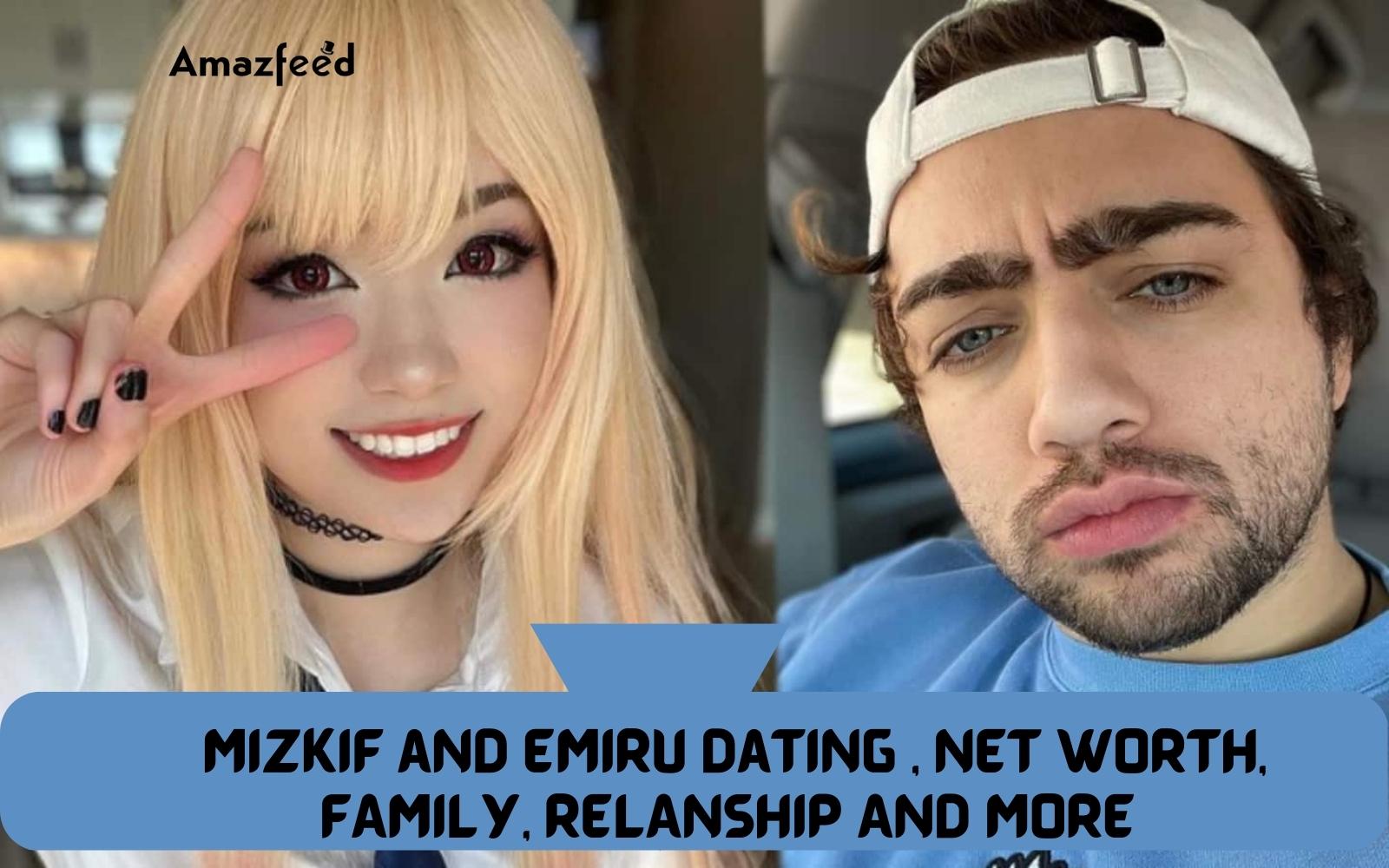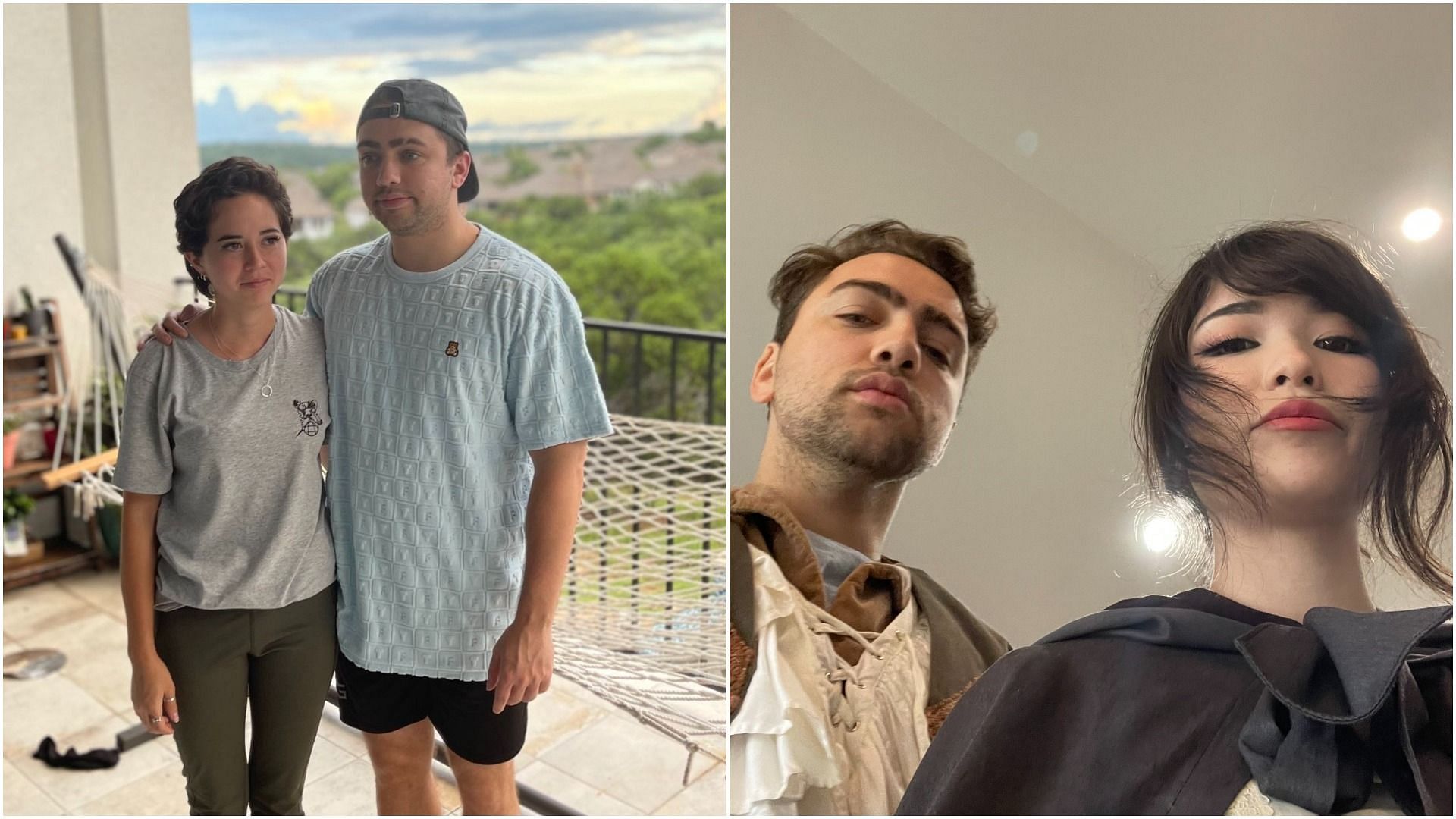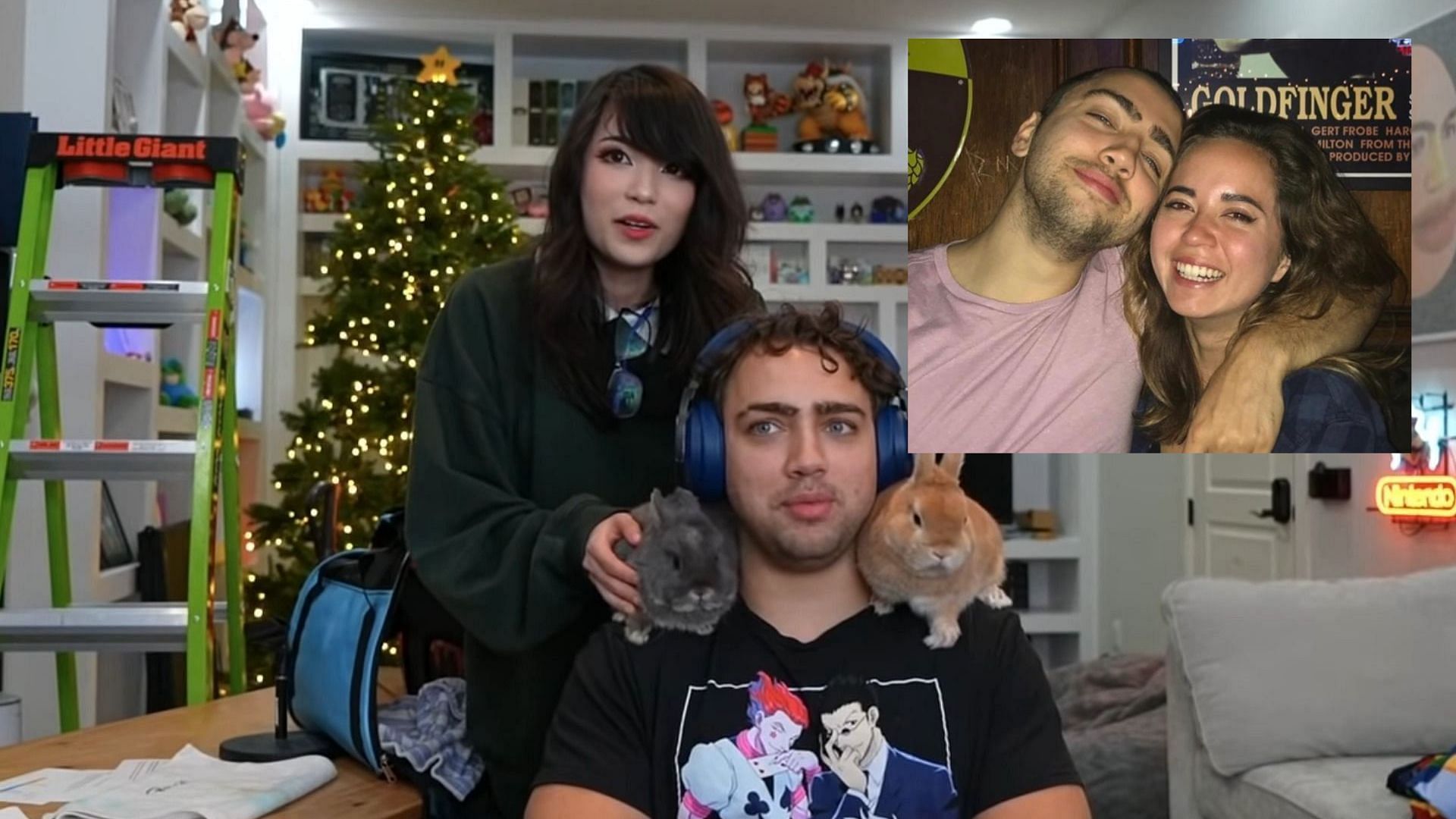Does Emiru Have A Boyfriend - Unraveling The 'Does'
When you hear someone ask, "Does Emiru have a boyfriend?", it's a very straightforward question, isn't it? Yet, if we pause for just a moment, that little word "does" in there is quite fascinating, actually. It’s more than just a simple piece of a question; it's a tiny, powerful part of how we put our thoughts into words, especially when we're curious about a single person.
You see, that particular form, "does," is a special way we use the verb "do" when we're talking about one individual, like Emiru, or any single person or thing for that matter. It's how we make sure our sentences fit together just right, making sense when we're asking or stating something about a singular subject. It's almost like a secret handshake between the words, ensuring they all get along in the sentence structure.
So, while the main point of the question itself is, well, about Emiru, what we can really look at here is how that specific word, "does," plays its part in how we build sentences. It's a key piece of the puzzle when we're trying to figure out how to speak and write clearly, especially when we're asking about someone in the singular. It’s pretty much a fundamental part of how we communicate, you know?
- Frizzy Hair Hair Mask
- Jeremiah Vs Conrad
- Nipple Clamps Use
- Summer Cute Hairstyles
- Disgusting Ice Cream Flavors
Table of Contents
- What Is the Deal with 'Do' and 'Does'?
- So, How Do We Use 'Does' for Someone Like Emiru?
- Why Does It Matter for Questions About People?
- Getting a Handle on 'Do' and 'Does'
- The Basic Idea Behind 'Does Emiru Have a Boyfriend'
- When 'Do' Steps In for Our Questions
- A Quick Look at How They Work in Everyday Talk
- What the Dictionaries Say About 'Does Emiru Have a Boyfriend'
What Is the Deal with 'Do' and 'Does'?
You know, when we talk about putting sentences together, there are some little words that really do a lot of heavy lifting. "Do" and "does" are, in a way, like two sides of the same coin. They are both forms of the verb "do," and they both show up when we're talking about things happening right now, in the present time. It’s almost like they’re twins, but with slightly different jobs, if that makes sense. The choice between them, you see, pretty much hangs on who or what you're actually talking about in your sentence. It's a bit like picking the right tool for the job; you wouldn't use a screwdriver for a nail, would you? Well, in the same way, you pick "do" or "does" depending on the subject. We’re going to, you know, walk through the small differences here, so it all feels a bit clearer.
So, How Do We Use 'Does' for Someone Like Emiru?
When you're curious about someone like Emiru, or really any single person, "does" is the word you'll typically reach for. It's the form of "do" that we pair up with what we call the "he/she/it" subjects. So, if you're talking about a single individual, like "he," or "she," or even an "it" (though we wouldn't use "it" for Emiru, obviously!), "does" is the word that just fits. For example, if you wanted to ask about someone else, you might say, "Does he like pizza?" or "Does she enjoy gaming?" It’s really about making sure the verb agrees with the person or thing you're focusing on. This little rule helps keep our language sounding natural and correct, which is pretty important when you’re trying to get your message across, you know?
Why Does It Matter for Questions About People?
Honestly, getting a good grasp on when to use "do" and when to use "does" is pretty much a big deal for speaking and writing English in a way that sounds right. It's not just about sounding formal or proper; it's about making sure your questions and statements are clear and easily understood. When you ask, "Does Emiru have a boyfriend?", using "does" tells the listener, right away, that you're asking about one specific person. If you were to say, "Do Emiru have a boyfriend?", it just wouldn't sound quite right to someone who speaks English every day. It's almost like a small signal that helps everyone understand who or what you're referring to. This precision, in a way, helps avoid confusion and makes conversations flow much more smoothly. It’s a very subtle thing, but it truly makes a difference in how your words are received.
Getting a Handle on 'Do' and 'Does'
Let's just take a moment to really get a feel for how "do" and "does" work in our everyday conversations. They're both present tense versions of that very common verb, "do." But the trick, and it's not really a trick so much as a basic rule, is knowing which one to pick. It really does come down to the subject of your sentence, the person or thing that is doing the action or being talked about. You see, the way we use these words can change quite a bit depending on whether we're talking about one single person or several people, or even ourselves. It’s a bit like learning the rhythm of a song; once you get it, it just feels right. We've actually put together a bit of a simple guide to help you use "do" and "does," and even "did" for things that happened in the past, both as action words and as helper words in sentences. It's really about making your sentences clear and natural sounding, which is pretty much the goal, isn't it?
The Basic Idea Behind 'Does Emiru Have a Boyfriend'
The core concept behind using "does," especially in a question like "Does Emiru have a boyfriend," is pretty simple once you grasp it. "Does" is the form we use for a single person or thing in the present time. Think of it this way: if your sentence's main focus is a singular noun, like "Emiru" (who is just one person, after all), then "does" is the word that naturally fits. It’s the third-person singular form of "do" in the present tense. So, when you're talking about "he," "she," or "it," you use "does." It’s a fairly consistent rule that helps keep our language tidy. This is a very fundamental building block for putting together questions and statements that are grammatically sound, which is something we all aim for, you know, when we're trying to communicate effectively.
When 'Do' Steps In for Our Questions
Now, while "does" is for single subjects, "do" has its own very important role to play. You pretty much use "do" when the subject of your sentence is "I," "you," "we," or "they." It’s like "do" is the word for the plural crowd, or for when you're talking about yourself or the person you're speaking to directly. For example, you would say, "I do like pizza," or "They do enjoy movies." It's a simple switch, but it’s a really important one for making sure your sentences are put together correctly. Understanding this distinction is really key to writing and speaking English in a way that feels natural and makes sense to others. It’s not just about following rules; it’s about making your words flow easily, which is actually a pretty neat thing to master.
A Quick Look at How They Work in Everyday Talk
So, we've talked a bit about the basic ideas, but let's just consider how these words, "do" and "does," actually show up in our daily conversations and writings. They're not just for formal papers; they're used constantly, every single day. For instance, when you're reading a simple sentence or hearing someone speak, you'll see "do" and "does" popping up all the time. It’s almost like they’re the unsung heroes of sentence structure, helping us ask questions, make negative statements, and even add emphasis. They're really quite versatile. Understanding when to use each one is pretty much fundamental for anyone who wants to communicate clearly in English. It's about getting the small details right, which, you know, makes a big difference in the long run.
What the Dictionaries Say About 'Does Emiru Have a Boyfriend'
It’s actually pretty interesting to see how dictionaries explain words like "does." If you look up "does" in a place like the Oxford Advanced Learner’s Dictionary, you’ll find its meaning, how to say it, maybe a picture, and definitely example sentences. They’ll also give you details on its grammar and how it's used, along with synonyms. This is where you really get the full picture of the word. Some dictionaries, like Collins COBUILD Advanced Learner’s Dictionary, will also point out that "does" is the third-person singular in the present tense of "do." It’s also worth noting that "does" can be one of those words that are spelled the same but sound different and have different meanings, which makes them what we call heteronyms. So, while we're asking "Does Emiru have a boyfriend," the word "does" itself has a rich history and a very specific place in our language, according to, you know, the folks who write the dictionaries. It’s pretty much the foundation of understanding how these words function.
Article Recommendations



Detail Author:
- Name : Ebony Becker
- Username : whegmann
- Email : hkoepp@gaylord.com
- Birthdate : 1977-05-22
- Address : 714 Zula Passage Luettgenbury, NC 15846
- Phone : 469.968.3572
- Company : Aufderhar Inc
- Job : Bill and Account Collector
- Bio : Ut eos et possimus aliquam non officiis. Possimus velit dolorum nulla et quisquam. Sit esse porro repudiandae consequatur et. Alias reiciendis molestias officiis rem quasi.
Socials
twitter:
- url : https://twitter.com/aborer
- username : aborer
- bio : Et quisquam deleniti quia ab tenetur delectus. Asperiores eum dolor aut beatae cupiditate. Nihil consequuntur et in vitae deleniti vero placeat.
- followers : 1012
- following : 1669
linkedin:
- url : https://linkedin.com/in/adriana_official
- username : adriana_official
- bio : Sunt quia mollitia quaerat delectus et fuga id.
- followers : 5118
- following : 2442
tiktok:
- url : https://tiktok.com/@adriana.borer
- username : adriana.borer
- bio : Fuga ullam fugit repellendus perspiciatis inventore.
- followers : 3404
- following : 1051